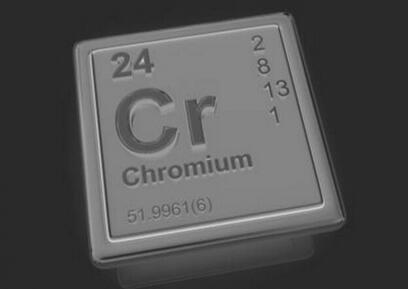
从好处角度出发,添加铬是一种特殊形式的浪费,且在许多国家都是如此。是NRC对此有所遗漏还是监测不够?的确,作为这一领域的营养学家,我会一直收集关于在单胃动物日粮中添加铬的相关疑问,大多部使用者的使用原因都是由于广告和市场营销。
这里,我需要将你的注意力吸引到一本非常有好的书上。虽然这本书已经过时,但这本书对超营养水平添加铬这方面的解释非常好,书名为“铬在动物营养中的作用”,是由NRC在1997年出版的。我只需要引用这本书里的两小段就可以很好地展示营养学家对铬的困惑:
“…但是对日后是否将铬批准为饲料添加剂及是否存在足够的数据来支持铬的日粮需求存在争议…”
不过,也不能忽视该书中对铬添加的一些积极信息,如:
“…已表明铬可提高农场利润,添加铬可提高许多动物的健康状态,包括延长寿命、提高生产力,降低代谢紊乱、应激、疾病的发生率,降低抗生素的使用量,改善免疫反应能力和瘦肉胴体质量…”
我必须承认这些主张是非常让人印象深刻的。当然,自1997年研究一直进行,但结果却仍然令人费解。因此,现在该怎么做?我必须公开地说明一下,过去有的顾客在铬的使用方面取得了成功,但另一些却没有看到改善作用。最后,我的建议还是一样:直到我们已有工具能够证明超营养水平添加铬的好处之前,铬饲料添加剂还是处于农场自主选择状态。也就是说,对铬饲料添加剂的使用需谨慎处理!
附原文:
What is the deal with chromium feed additives?
Pigs and poultry do not require supplementation with chromium to thrive. Chromium is an essential nutrient, but enough is provided by natural feedstuffs to cover their modest requirements. Indeed,National Research Council publications for pigs and poultry do not report any chromium requirements. As such, chromium — a trace mineral like iron and zinc — is not part of basic?trace mineral premixes used in pig and poultry feeds worldwide.
Chromium in specific forms is an additive prodigal in beneficial claims, sold in many countries. Is there something missing or overseen by the above scientific bodies? Indeed, as a field nutritionist, I keep receiving questions regarding the use of chromium in diets for monogastric animals, most of them precipitating from?ongoing advertisements and marketing .
Here, I need to bring your attention to a very useful publication, which is outdated but still captures the dilemma regarding chromium supra-nutritional supplementation: “The role of chromium in animal nutrition ” published in 1997 by the National Research Council. From this book, I only need to quote two phrases to expose the dilemma faced by nutritionists:
“…controversy exists, however, over whether chromium sources should be approved as feed additives and whether enough data exist to establish dietary requirements…”
Nevertheless, the same source does not ignore the plethora of good news when it comes to chromium, stating:
“…chromium use has been suggested to have positive impacts on farm profitability, and many animal health benefits have been attributed to chromium supplementation, including increased longevity; enhanced reproduction; decreased incidence of metabolic disorders, stress effects, and disease; reduced need for antibiotic usage; improved immune response; and lean carcass quality…”
Quite an impressive list of claims, I must admit. Of course, research continues since 1997, but results remain equally puzzling. So, one is excused to ask, what to do now? I must disclose that I have had customers that had good success using chromium whereas others saw no improvement. At the end, my recommendation remains the same: until we're provided with the tools to discern when supra-nutritional chromium supplementation might be of some benefit, chromium additives must be approached on a farm-specific basis. That is, proceed with caution!
















